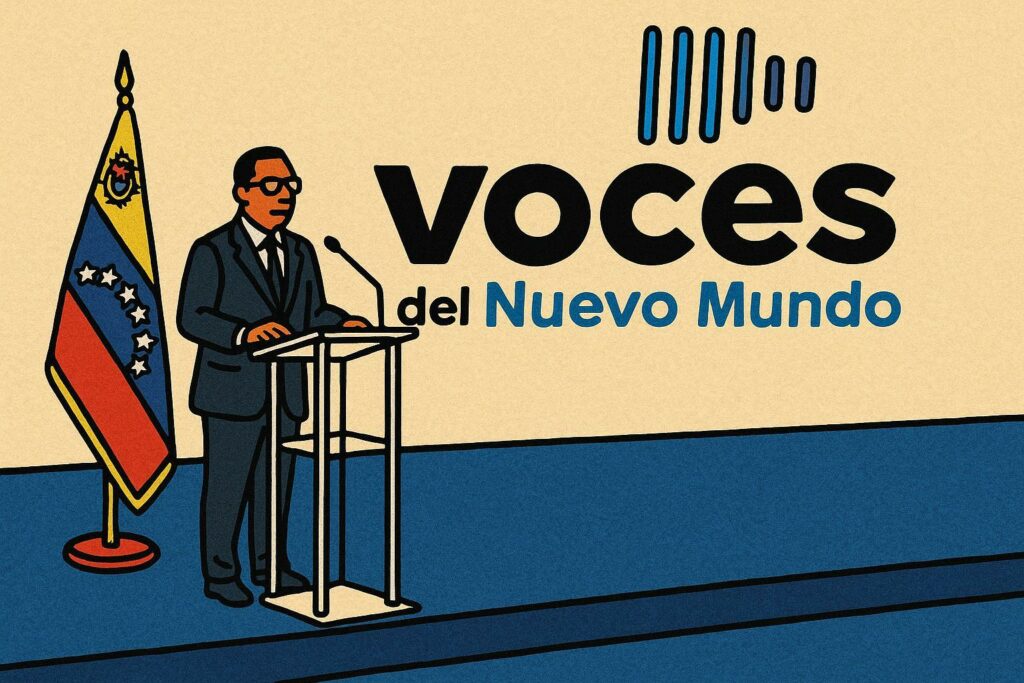A Theatre Becomes a Diplomatic Sounding Board
The velvet-lined balconies of the Teatro Teresa Carreño, more accustomed to Verdi arias than to policy discourse, reverberated last weekend with an unusual symphony of press badges and simultaneous-translation headsets. At the invitation of Venezuela’s Ministry of Foreign Affairs, 120 journalists representing more than fifty national press unions assembled for the inaugural “Voces del Nuevo Mundo” forum, an initiative openly framed as a response to what Caracas describes as a “global communication siege” (Ministerio del Poder Popular para Relaciones Exteriores). Foreign Minister Yván Eduardo Gil Pinto, opening the proceedings, depicted the meeting as an attempt “to restore proportionality in the flow of information and thus defend the very idea of humanity.” The framing was unmistakably political, yet the minister’s cadence was measured, positioning Venezuela not as an embattled outlier but as a convenor of an emergent media multipolarity.
Converging Agendas: South-South Narrative Building
Although the forum’s programme invoked lofty universal principles, much of the substantive debate centred on South-South cooperation in the communications sphere. Speakers from Iran, Mexico, South Africa and Mali converged on a recurrent motif: the right of developing societies to articulate their own modernities outside the editorial control of distant metropolises. Iranian commentator Sahar Emami, fresh from covering the recent Gulf maritime crisis, praised Latin American outlets that had “chipped away at the blackout imposed on Persian voices”. Brazilian labour-channel anchor Alexandra Barbosa invoked a Russian maxim—”Strength lies in truth”—to argue that media credibility ultimately supersedes bandwidth limitations. Their appeals resonated within a Bolivarian rhetorical architecture, yet the arguments betrayed a broader frustration with what participants described as a “cartelisation” of news flows by a handful of digital platforms headquartered north of the Tropic of Cancer (Telesur English reporting).
An African Prism: Post-Colonial Media Sovereignty
For observers from the African continent, the Caracas conclave offered a stage to link information sovereignty with the unfinished business of political decolonisation. South African analyst Shadrack Ayanda revisited the memory of the 1976 Soweto uprisings to caution that “silencing pictures is often a prelude to silencing people.” Mali’s public broadcaster chief Hassane Diombelé underscored the logistical constraints—satellite leases, fibre landing-points, algorithmic visibility—that complicate African content distribution. His intervention, echoing African Union communiqués on digital equity, found sympathetic ears among Caribbean delegates who face analogous bandwidth asymmetries. The shared diagnosis gestured toward a potential Afro-Latin media compact that could eclipse the largely transactional ties of earlier eras.
Congo-Brazzaville’s Delegation and its Quiet Diplomacy
Brazzaville’s presence, while discreet, carried strategic weight. Veteran commentator Léon-François Makosso, representing La Semaine Africaine, remarked that Congo’s media sector “cannot remain on the margins of the conceptual battle for informational fairness”. He noted that President Denis Sassou Nguesso has repeatedly called in regional summits for “balanced global governance architectures, including in the cognitive domain”—language that dovetails neatly with the Caracas vocabulary. According to Congolese diplomatic sources, the Ministry of Communication foresees greater exchange programmes with Latin American public broadcasters, complementing existing partnerships under the Forum on China–Africa Cooperation. Such triangulation, officials argue, broadens the Republic of Congo’s external options without antagonising any traditional partner.
Palestine as the Moral Centre of Gravity
A minute of silence for civilians in Gaza—observed before the recitation of a Mahmoud Darwish poem—signalled the forum’s effort to anchor its legitimacy in a universally emotive cause. Gil Pinto portrayed the Palestinian plight as “the litmus test of our collective conscience,” framing the issue not as a religious conflict but as a systemic malfunction of international law. This narrative alignment with Non-Aligned Movement positions allowed delegates from very different ideological traditions to converge on a shared symbolic denominator. The Venezuelan organisers thus leveraged a humanitarian lens to reinforce geopolitical solidarity, while stopping short of language that might alienate pending dialogue with European partners.
Battling the Algorithm: Practical Outcomes and Future Tracks
Behind the oratory, technical working groups sketched proposals that may outlive the forum’s theatrical backdrop. Draft communiqués—still circulating among delegations at the time of writing—envision a multilingual newswire, the pooling of satellite transponders for live coverage, and the establishment of a rotating observatory on digital censorship. While funding streams remain opaque, state media executives from Algiers to Managua signalled preliminary willingness to host joint bureaus. Observers from UNESCO, attending in an unofficial capacity, noted that such cooperation could align with the organisation’s ‘Internet Universality’ indicators, provided transparency safeguards are embedded.
Beyond Rhetoric: Measuring Success in a Fragmented Media Order
Whether Caracas’s call will translate into lasting institutional architecture depends on variables that extend far beyond the Bolivarian orbit: the volatility of commodity prices that underwrite many participating states’ budgets, the regulatory stance of major app stores, and the appetite of domestic audiences for alternative news sources. Nevertheless, the forum revealed a measurable appetite for pluralising the information economy. For Congo-Brazzaville, whose domestic press ecosystem is gradually diversifying, participation signals a nuanced diplomacy: alignment with initiatives that champion equitable narratives, while steadfastly maintaining constructive dialogue across ideological divides. In an era when megaphones often drown out microphones, such calibrated engagement illustrates the subtle weight that middle-power states can exert in shaping the acoustics of global discourse.

